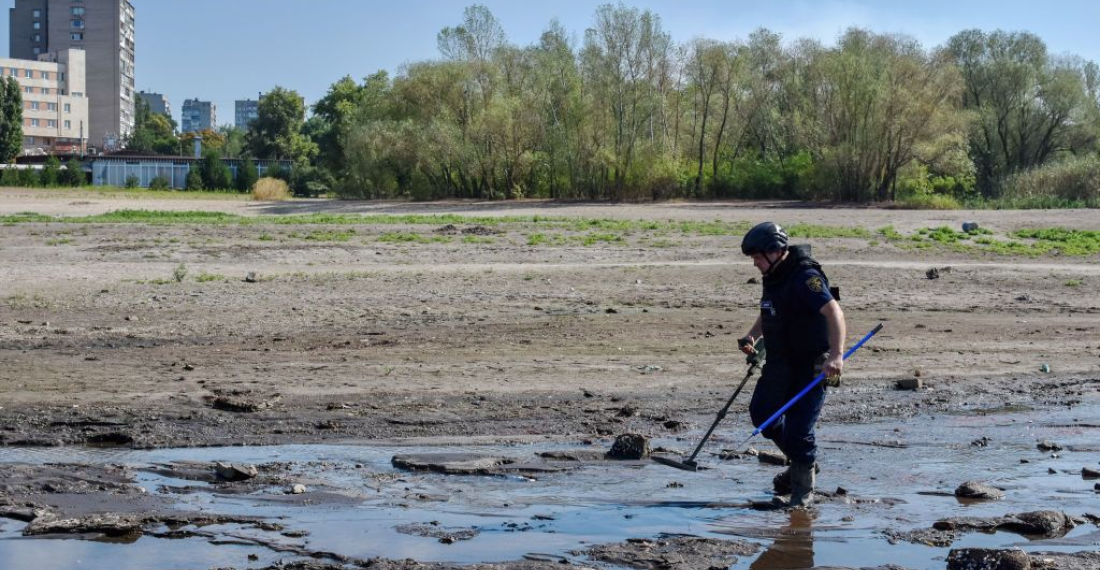The Ukrainian Defense Minister Oleksiy Reznikov has told The Guardian newspaper in an interview on Sunday (13 August) that Ukraine is the "most heavily mined country in the world". He also said that Ukraine is suffering from a serious shortage of personnel and equipment in clearing the frontlines so the country can continue with its counteroffensive against Russia.
Speaking to the British newspaper, Reznikov said, "today, Ukraine is the most heavily mined country in the world. Hundreds of kilometres of minefields, millions of explosive devices, in some parts of the frontline up to five mines per square metre."
"Russian minefields are a serious obstacle for our troops, but not insurmountable. We have skilled sappers and modern equipment, but they are extremely insufficient for the front that stretches hundreds of kilometres in the east and south of Ukraine."
Although a small number of the mines were laid by Ukraine to hamper further Russian advances into their country, the overwhelming majority are Russian. Ukrainian President Volodymyr Zelensky has complained that delay and hesitation in western powers supplying Ukraine with arms for its counteroffensive gave Russia time to plant millions of mines along the frontlines.
Lithuania announces demining coalition for Ukraine, but Reznikov says more help is needed
At a summit at the Ramstein air base in Germany on 15 July, Lithuania announced a plan to create a demining coalition for Ukraine to help consolidate aid in the form of training and mine-clearing equipment. Reznikov said the initiative had unlocked donations, but added that more help was desperately needed from a wider range of partners.
"The de-mining equipment has long been unlocked and we are grateful to our international partners for the already provided support," said Reznikov. "An important step in this direction was the creation at the latest Ramstein meeting of the de-mining coalition at the initiative of the Lithuanian defence minister."
"It is also vitally necessary to expand and expedite the training of sappers. It should be fast and systematic. Sappers are needed here and now. Their work saves lives and ensures the advancement of our troops. The de-mining coalition is build on the principle ‘train and equip’. Its efficient implementation will bring Ukraine’s victory closer."
Meanwhile, The HALO Trust's programme manager for Ukraine Pete Smith has said that the scale of mine contamination in Ukraine is "unrecognisable in modern history".
"What we’re witnessing is the heaviest landmine and unexploded ordnance sort of contamination seen certainly in Europe since the second world war. There’s considerable evidence of large linear minefields. The other day one walked along a 1.5km minefield with a TM-62 mine placed every 1 metre and that’s just one small part of Mykolaiv [a region in south Ukraine]," he said.
"Those were areas that were reoccupied by Ukraine quite quickly. Now, across that 1,000km frontline, and then layers and layers of minefields behind that, is something that has been quite unrecognisable in modern history."
Smith added that there is evidence of Russia having booby-trapped mines to prevent sappers from clearing them, further slowing down the demining process. He estimated that even with 10,000 sappers it would take up to a decade to completely decontaminate Ukraine.






